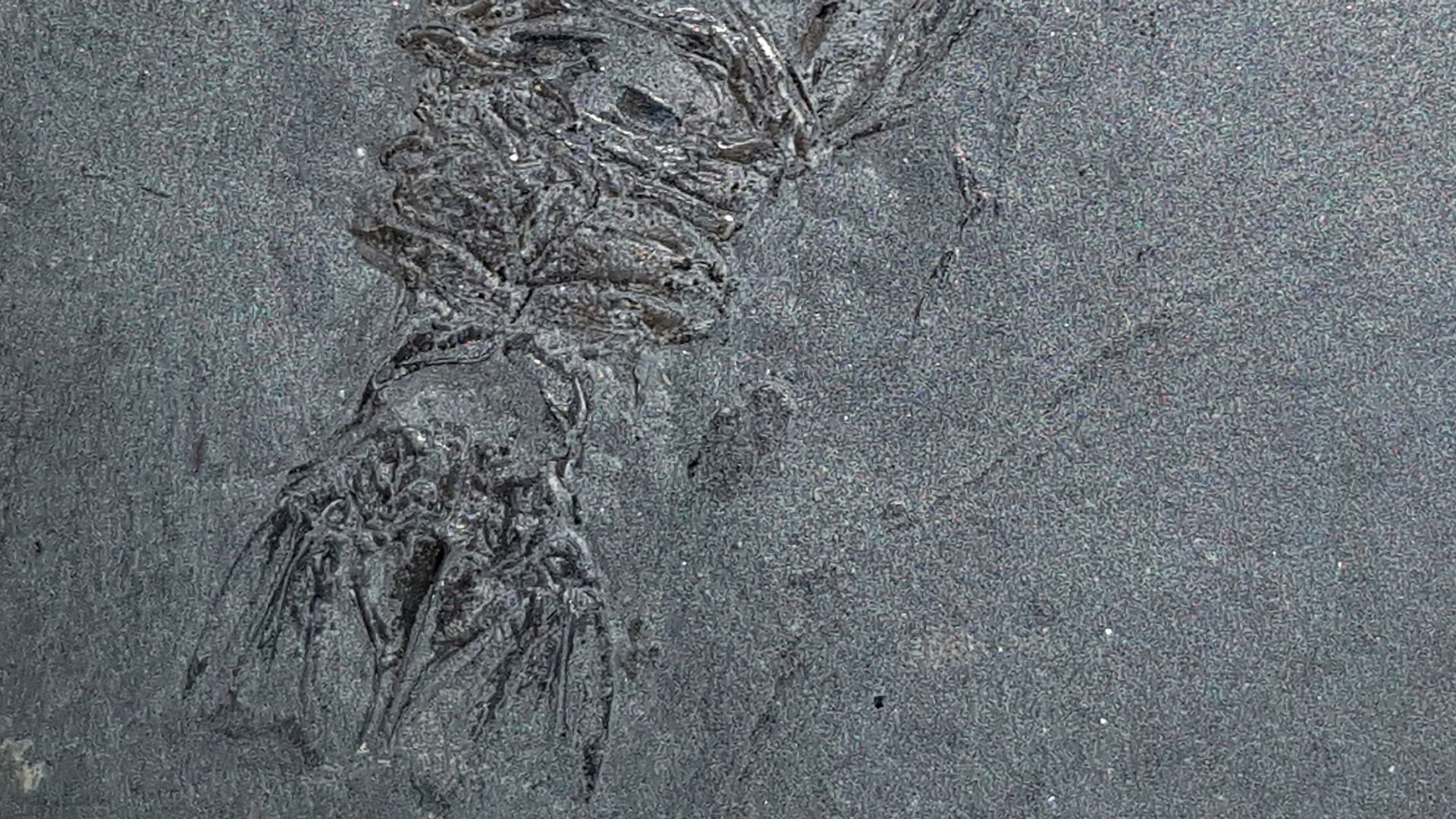A type of shrimp that died out hundreds of millions of years ago has been declared a new species and given a Glasgow name in tribute to its roots.
The shrimp is believed to have swam in the Carboniferous seas surrounding the Scottish city around 333 million years ago.
Its fossil was found at the same world-famous locality where the Bearsden Shark was excavated in the early 1980s.
The shrimp has been christened Tealliocaris weegie after a scientific paper identified it as a Glaswegian crustacean.
Its authors thought that it would be appropriate to name the new species in honour of the people of Glasgow and the local dialect.
The paper was recently published in the Royal Society of Edinburgh’s journal Earth and Environmental Science Transactions.
Dr Neil Clark, curator of palaeontology at The Hunterian and one of the paper’s authors, said: “It is quite rare that any fossil is recognised as a new species and particularly the fossilised remains of a shrimp.
Scottish singer drafted in to replace Olly Murs at Glasgow Take That concert thought offer was a ‘joke’
Ryan Wheeler: Third man charged over fatal road crash in Milngavie
Speed limit on almost 4,000 Glasgow streets to be cut to 20mph
“I am especially proud, as a Glaswegian myself, that we were able to name a fossil shrimp Tealliocaris weegie.
“Named after the people of Glasgow, this must surely be one of the oldest weegies at over 330 million years old.”
Read more from Sky News:
New species of pterosaur discovered
Baby dinosaur remains inside tyrannosaur ‘could shed light on eating habits’
Keep up with all the latest news from the UK and around the world by following Sky News
The new species of crustacean, along with others collected recently from the Scottish Borders, are now in the collections of National Museums Scotland.
Be the first to get Breaking News
Install the Sky News app for free
Professor Rob Ellam FRSE, emeritus professor at the University of Glasgow and editor of the Earth and Environmental Science Transactions journal, said: “This new species of fossil crustacean is basically a tiny fossil version of what we eat as scampi today.
“This paper goes to show that there is still great science to be done with fossils that can be discovered on our own doorstep.
“Moreover, naming one of the new species T. weegie shows that there is still room in the serious world of professional palaeontology and scientific publishing for a welcome bit of light-hearted Glaswegian banter.”






















